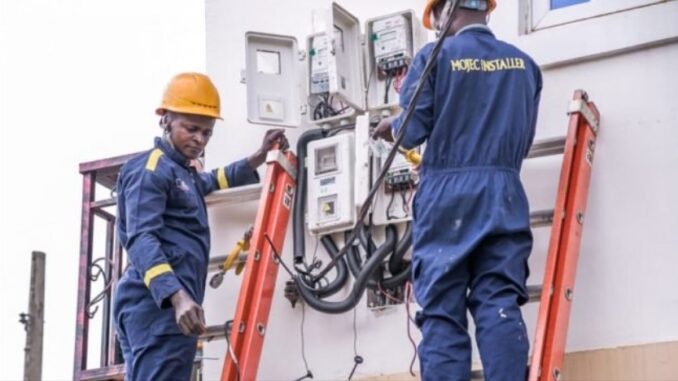
Here are the seven top business stories you need to track this week — June 26 to July 30.
ELECTRICITY TARIFF HIKE
The federal government recently announced a possible increase in electricity tariff by 40 percent effective July 1, 2023.
The hike, according to the government, was in response to the surge in the pump price of petrol occasioned by the removal of subsidy.
Stakeholders such as the Manufacturers Association of Nigeria (MAN) and the Nigeria Labour Congress (NLC) have flayed the proposed tariff increase, warning of huge consequences on the consumers.
On Saturday, the Abuja Electricity Distribution Company (AEDC) said it would increase tariffs due to the fluctuating exchange rate in the country.
The distribution company said the upward review is needed due to the fluctuation of the naira in the exchange rate market.
NBS REPORT
The National Bureau of Statistics (NBS) is expected to release a report on internally generated revenue at the state level (2022 full year).
The bureau also intends to release a report on prison statistics for 2022.
FAAC: FG, STATES, LG SPEND N786bn IN MAY 2023
The Federation Account Allocation Committee (FAAC) shared a total of N786.161 billion among the three tiers of government in May 2023.
The disbursement shows an increase of N102.23 billion compared to April’s allocation of N655.93 billion.
According to a communiqué issued at the end of the FAAC meeting in Abuja, the N786.161 billion total distributable revenue comprised distributable statutory revenue of N519.545 billion, distributable value-added tax (VAT) revenue of N251.607 billion, electronic money transfer levy (EMTL) of N14.370 billion, and exchange difference revenue of N0.639 billion.
The federal government received N301.889 billion, the states received N265.875 billion, and the local governments received N195.541 billion. While N22.855 billion was shared among the oil-producing states as 13 percent derivation revenue.
CBN ISSUES GUIDELINES FOR CUSTOMERS
The Central Bank of Nigeria (CBN) has issued guidelines requiring banks to collect and verify social media handles as part of their know-your-customer (KYC) procedures.
The apex bank issued the directive in its recently gazetted legislation, titled, ‘Customer Due Diligence Regulations 2023’.
The objective of the regulation, CBN said, is to prevent financial crimes and terrorism while boosting the precision and thoroughness of customer identification.
LAGOS TAKES EKO RICE TO COMMODITIES MARKET, SEEKS INVESTMENT
The Lagos government sealed a partnership deal with the state commodities and futures exchange to ensure a steady supply of rice paddy to its rice mill in Imota, Ikorodu.
Babajide Sanwo-Olu, governor of Lagos, said through the partnership, 15,000 metric tonnes of paddy will be milled and sold to the public every three months.
The governor spoke during the launch of the ‘Five Billion Series 1 of the 30 Billion Eko Rice Contracts’ on the Lagos Commodities and Futures Exchange.
He said the project was a game changer, adding that the public-private partnership (PPP) would improve agriculture and food security in the state.
BLUE LINE RAIL TO OPEN OPERATIONS
The Lagos Metropolitan Area Transport Authority (LAMATA) says the blue line rail system would be open for passenger operations in August 2023.
Abimbola Akinajo, the agency’s managing director, disclosed this at the LAMATA business/investor forum, according to a statement on Thursday by Kolawole Ojelabi, the authority’s corporate communication consultant.
According to the statement, Akinajo said the ongoing test run activities would soon close, allowing for passenger operations to commence in the said month.
FG LICENSES EMADEB, ETERNA TO IMPORT PETROL
Eterna Plc, Emadeb Energy Services Limited, and Asharami Energy have been licensed by the Nigerian Midstream and Downstream Petroleum Regulatory Authority (NMDPRA) to import petrol into the country, TheCable had reported.
According to sources, the three companies were the first among the six oil firms licensed to import petrol by July.
“The licensed companies are Eterna Plc, Emadeb Energy Services Limited, and Asharami Energy,” a source told TheCable.
Following the withdrawal of the petrol subsidy, the Nigerian National Petroleum Company (NNPC) Limited had said it is no longer the sole supplier of petrol in the country.
The federal government has granted approval to six companies for the importation of petroleum products.
The Nigerian Midstream and Downstream Petroleum Regulatory Authority (NMDPRA) had earlier said three oil marketers will start importing petroleum products in July.
END

Be the first to comment